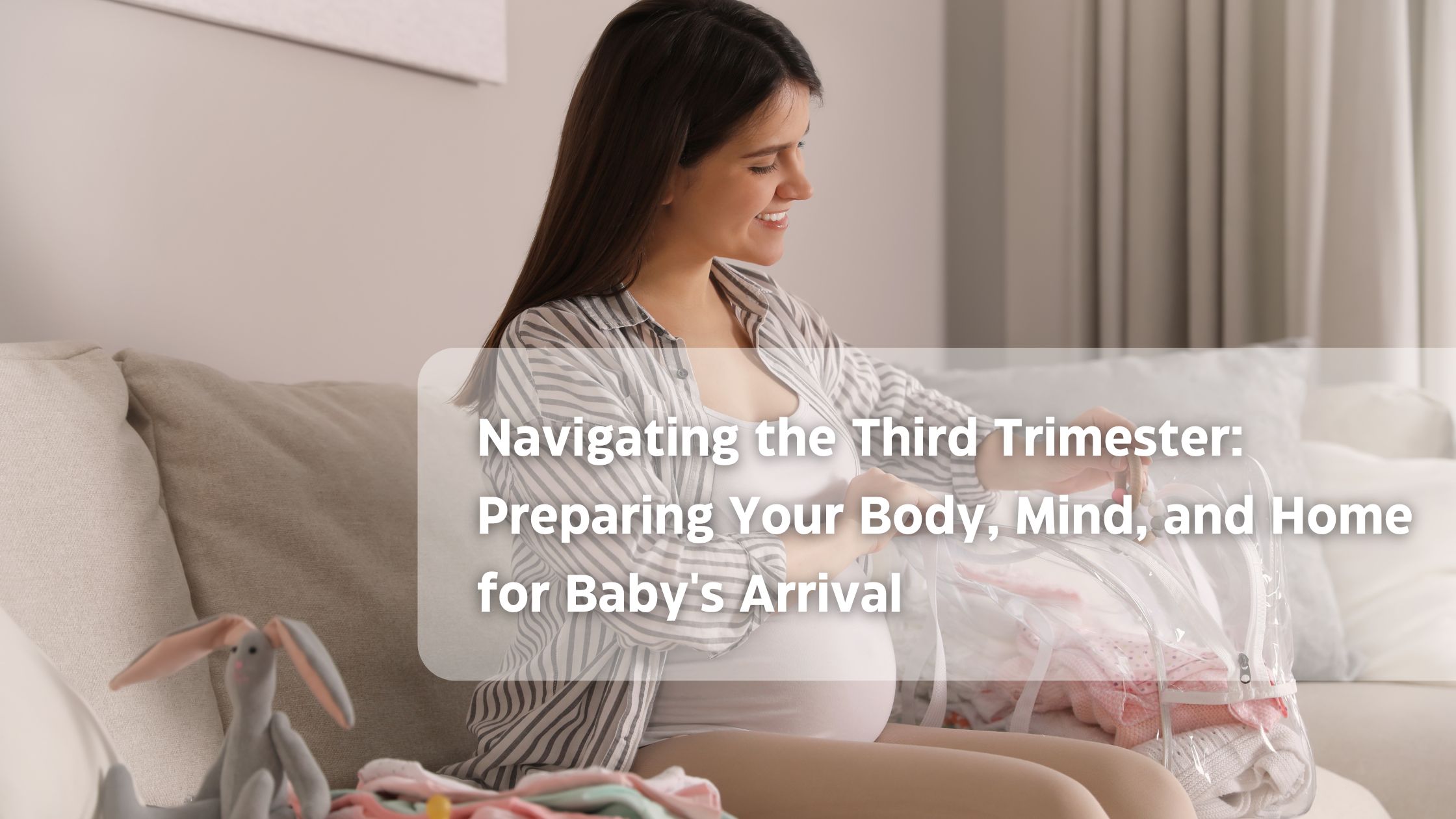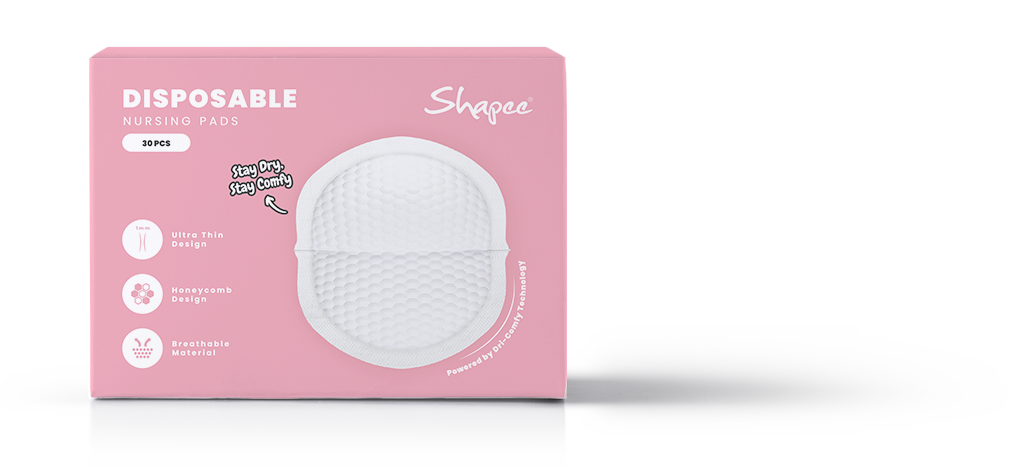Navigating the Third Trimester: Preparing Your Body, Mind, and Home for Baby's Arrival
Understanding the Shift: Embracing the Third Trimester Journey

THE EMOTIONAL RIDE OF PREGNANCY: THRIVING IN THE THIRD TRIMESTER
The third trimester is an emotional rollercoaster, filled with excitement, anticipation, and occasional anxiety. As you are near the final stretch of pregnancy, it's normal to experience a mix of joy, nervousness, and impatience. To stay positive, focus on the beautiful aspects of your journey are connecting with your baby through gentle touches, talking, or even playing soothing music. Sharing your thoughts and emotions with a supportive partner, friend, or community can help ease any worries. Consider keeping a pregnancy journal to document your experiences, as writing can be a therapeutic way to process emotions and create cherished memories. Every pregnancy is unique, so embrace your personal journey with confidence and self-care.
PHYSICAL CHANGES: WHAT NEW MOMS SHOULD KNOW
Your body will go through significant changes in the third trimester. You may experience:
-
Increased Back Pain
As your belly grows, the added weight shifts your center of gravity, putting extra strain on your lower back. Hormonal changes also loosen ligaments, which can contribute to discomfort. Practicing good posture, using supportive pillows, and engaging in gentle stretches or prenatal yoga can help ease the pain.
-
Swollen Feet and Ankles
Fluid retention and increased pressure on your veins can cause swelling, especially in your feet and ankles. Staying hydrated, elevating your legs when resting, and wearing comfortable, supportive shoes can help reduce swelling. Light exercises, like short walks or ankle rotations, can also improve circulation.
-
Difficulty Sleeping
Finding a comfortable sleeping position becomes harder as your belly grows, and frequent trips to the bathroom or restless legs can disrupt rest. Using a pregnancy pillow for support, sleeping on your side (preferably on the left), and establishing a relaxing bedtime routine can improve sleep quality. Avoiding caffeine and staying active during the day can also help you rest better at night.

BUILDING A SUPPORT SYSTEM FOR HOME STRETCH
A strong support system is crucial in the third trimester. Identify people who can help you. This might include:
- Your partner
- Family members
- Close friends
- Your healthcare provider
Discuss your needs and expectations with your support system and consider joining a prenatal class or support group to gain valuable insights and connect with other moms-to-be. Plan for postpartum support by arranging help with household tasks and baby care. Don’t hesitate to ask for assistance. A strong support system can make your journey into motherhood smoother and less stressful.
HEALTH AND WELLNESS FOR NEW MOMS: BEYOND THE BASICS
Optimal Nutrition and Hydration for Your Baby's Growth
Focus on eating a balanced diet rich in:
- Protein
Protein is essential for your baby's growth, helping to build muscles, tissues, and organs. It also supports your body's increased blood supply. Good sources include lean meats, eggs, dairy, beans, nuts, and tofu. Aim for a balanced intake to ensure proper development.
- Calcium
Calcium strengthens your baby's bones and teeth while maintaining your own bone health. If you don’t get enough, your body will take calcium from your bones to support your baby. Dairy products, leafy greens, almonds, and fortified foods are great sources.
- Iron
Iron helps prevent anemia by supporting red blood cell production, ensuring enough oxygen reaches both you and your baby. Pregnant women need more iron, which can be found in red meat, poultry, spinach, lentils, and iron-fortified cereals. Pairing it with vitamin C-rich foods helps with absorption.
- Folic Acid
Folic acid is crucial for preventing neural tube defects and supporting your baby’s brain and spinal cord development. It's found in leafy greens, citrus fruits, beans, and fortified grains. Taking a prenatal vitamin with folic acid is often recommended.
- Omega-3 Fatty Acids
Omega-3s aid in brain and eye development for your baby and may help reduce the risk of preterm birth. Sources include fatty fish like salmon, walnuts, chia seeds, and flaxseeds. If you don’t eat fish, consider a doctor-approved supplement.
The Importance of Exercise and Maternal Fitness
Safe activities include:
· Walking
Walking is a simple, low-impact exercise that keeps you active without straining your joints. It improves circulation, helps manage weight gain, and boosts mood. A daily walk, even for 20–30 minutes, can enhance endurance and prepare your body for labor.
· Swimming
Swimming and water exercises relieve pressure on joints and reduce swelling while providing a full-body workout. The buoyancy of water supports your growing belly, making movements easier and more comfortable. It’s also great for strengthening muscles and improving flexibility.
· Prenatal Yoga
Prenatal yoga helps improve flexibility, balance, and relaxation while easing pregnancy discomforts like back pain. It also promotes deep breathing and mindfulness, which can be beneficial during labor. Choose gentle, pregnancy-safe poses and avoid lying on your back for extended periods.
· Gentle Stretching
Stretching helps relieve muscle tension, improve circulation, and maintain flexibility as your body changes. Simple stretches for the back, hips, and legs can ease aches and prepare your body for childbirth. Always stretch gently and avoid overextending to prevent injury.
Consult your doctor before exercising and choose low-impact activities like walking or yoga. Exercise improves sleep, boosts energy, and reduces swelling. Aim for 30 minutes most days, stay hydrated, and wear comfortable clothing. Listen to your body and avoid overexertion.
MANAGING HEALTH CHALLENGES UNIQUE TO THE THIRD TRIMESTER
Common issues include:
- Gestational diabetes
- Preeclampsia
- Anemia
- Braxton Hicks contractions
Regular check-ups are crucial. Your doctor will monitor your blood pressure and screen for these conditions. Report any unusual symptoms promptly.
To manage discomfort:
- Use a pregnancy support belt for back pain
- Elevate your feet to reduce swelling
- Practice relaxation techniques for better sleep
Don't ignore persistent headaches or sudden swelling. These could be signs of preeclampsia. Always err on the side of caution and contact your healthcare provider with concerns.
Essential during this trimester
Some items are particularly important in the third trimester:
· Pregnancy Pillow for Better Sleep
A pregnancy pillow provides essential support for your back, belly, and legs, helping you find a comfortable sleeping position as your bump grows. It can relieve pressure on your joints and improve sleep quality, making rest easier during the later stages of pregnancy.
· Stretch Mark Cream or Oil
As your belly expands, using a stretch mark cream or oil can help keep your skin moisturized and elastic. While it may not prevent stretch marks, it can reduce itchiness, promote skin hydration, and improve overall skin health. Look for pregnancy-safe ingredients like shea butter, cocoa butter, and vitamin E.
· Disposable Nursing Pads for Leaking
Leaking breasts can start during pregnancy or after birth, making disposable nursing pads essential for keeping your clothes dry and comfortable. They provide absorbency, prevent irritation, and help you feel fresh throughout the day. Choose soft, breathable options to avoid skin discomfort.
· Hospital Bag Essentials
Packing your hospital bag ahead of time ensures you're ready for labor and delivery. Essentials include comfortable clothing, maternity pads, toiletries, nursing bras, baby clothes, and important documents. Personal comfort items like lip balm, socks, and a phone charger can make your hospital stay more comfortable.
Start preparing your home by setting up the nursery and baby-proving your space for safety. Consider taking a childbirth class to feel more confident about labor and delivery. Stock up on postpartum essentials like maternity pads, comfortable underwear, and nursing supplies, along with self-care items to support your recovery. Planning ahead will help you feel more relaxed and ready for your baby’s arrival.


Balancing Hormones with Proven Self-Care Techniques
Try these techniques:
- Practice deep breathing or meditation
- Take warm baths (not too hot)
- Get regular prenatal massages
- Use aromatherapy with pregnancy-safe essential oils
- Engage in gentle prenatal yoga or stretching
Prioritizing sleep is essential as your body needs extra energy during pregnancy. Create a relaxing bedtime routine with activities like reading or a warm bath to improve sleep quality. Use supportive pillows and maintain a consistent sleep schedule to feel more rested and refreshed.
Remember, self-care isn't selfish. It's essential for your well-being and your baby's health. Don't hesitate to pamper yourself or ask for help when needed. You're doing important work, growing a new life!

